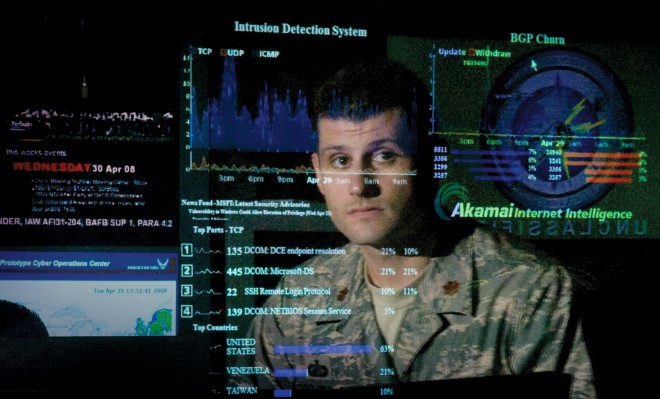Is the Pentagon finally getting serious about cyber security?
10/15/2015 / By usafeaturesmedia

(Cyberwar.news) After years of having its systems hacked and military secrets stolen by belligerent nation states and freelancers working for governments – and after U.S. experts have relentlessly pushed for it – the Pentagon finally appears set to take cyber security much more seriously.
As reported by the Washington Times, last week Deputy Defense Secretary Bob Work outlined the Defense Department’s plan to improve deterrence against cyber attacks from nations including North Korea, China and Russia.
In testimony before the Senate Armed Services Committee, Work also confirmed that three major cyber breaches have occurred in recent months and have been attributed to those three nations.
“The recent spate of cyber events including the intrusions into OPM, the attacks on Sony, and the Joint Staff networks by three separate state actors is not just espionage of convenience, but a threat to our national security,” Work said.
China was responsible for the hack of systems belonging to the Office of Personnel Management, while North Korea is believed to have carried out the hack of Sony Pictures Entertainment, he said. Russia was blamed for a denial-of-service attack that temporarily knocked out the Joint Chiefs of Staff email system.
As a result of these attacks and others, Work said the Defense Department – as part of an upgraded cybersecurity strategy – planned to create a Cold War-style cyber attack defense posture officials hope will reduce the level of sophisticated penetrations of vital systems, attacks and theft of vital data that have dramatically boosted tension between the U.S. and other great powers.
Deterring cyber attacks has not been a priority for the Obama administration, say congressional critics. They say the White House has relied too much on ineffective legal and diplomatic maneuvers rather than opting for tougher cyber defense.
As such, they say, attacks on U.S. systems have only increased, both in government and in the private sector.
Navy Adm. Mike Rogers, head of the National Security Agency and the U.S. Cyber Command, has pushed regularly for tougher cyber security, the Times noted. And he has said that the cost – meaning recourse by the U.S. – is low so there is little incentive for competitor nations to stop cyber attacks.
“I want to acknowledge upfront that [Defense Secretary Ashton Carter] and I recognize that we are not where we need to be in our deterrent posture,” Work told the Senate panel before explaining the new Pentagon cyber attack deterrence strategy.
“Deterrence is a function of perception,” he said. “It works by convincing any potential adversary that the costs of conducting the attack far outweigh the potential benefits, and therefore, our three main pillars of our cyber deterrence strategy in terms of deterrence are denial, resilience, and cost imposition.”
He also said deterrence is “having to demonstrate the capability to respond through cyber and non-cyber means to impose costs on a potential adversary” – something the administration has yet to do.
When asked if the U.S. response should include diplomatic downgrading and offensive cyber counterattacks, Work said “potentially all of those things.”
“I think we have to clearly articulate that, as a nation, we are developing a set of capabilities,” Rogers said. “We are prepared to use those capabilities if required.”
Have you ‘liked’ Cyberwar.news on Facebook? Click here!
You can monitor breaking stories about hacking and cyber attacks at AlternativeNews
See also:
Tagged Under: cyber security, Pentagon




















